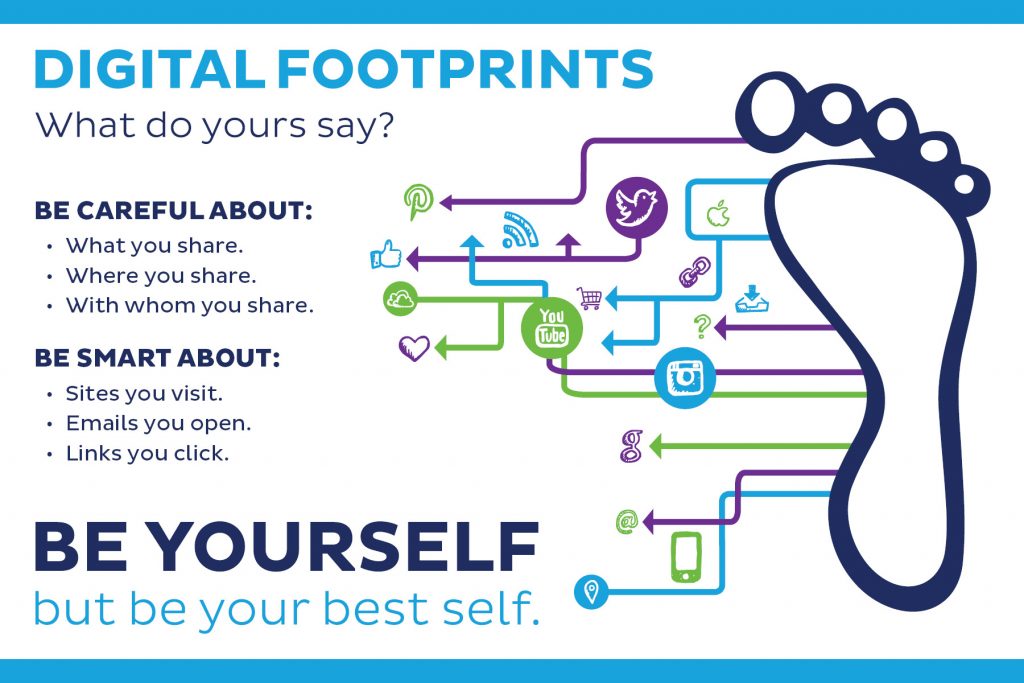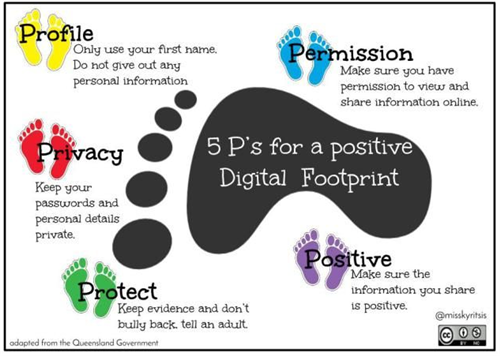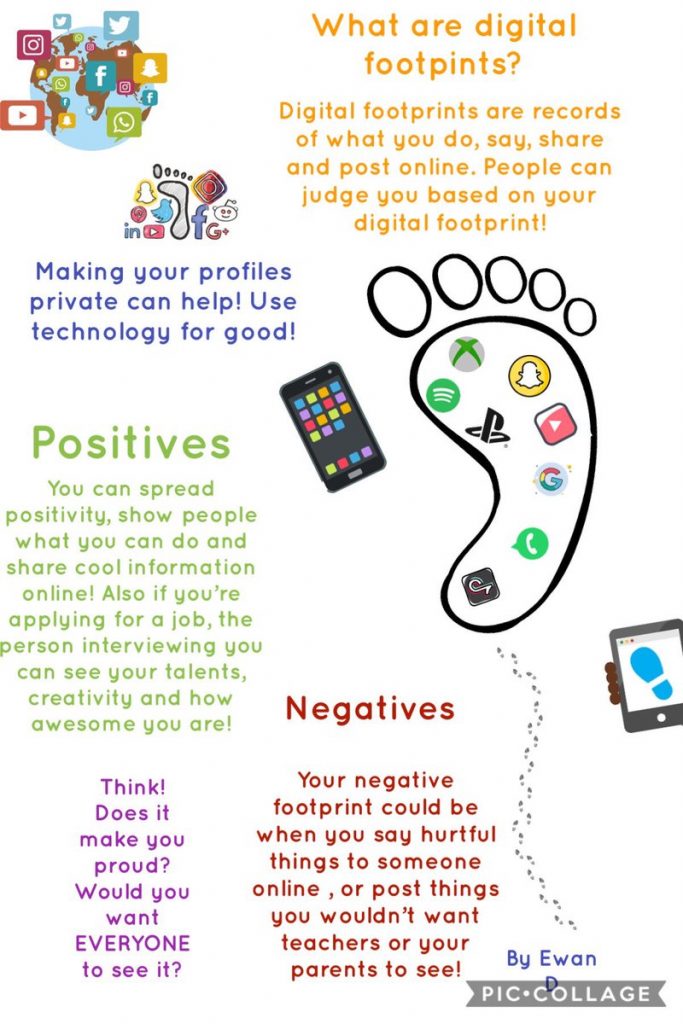Youth are more involved than ever in social media, producing material, expressing themselves, and building networks. The emergence of the internet has given them new and exciting opportunities. these options can endanger people by leaving a permanent record of negative information that might be challenging to remove. In a time where a large amount of our identity is “digital,” it is essential for us as instructors to assist our pupils in maintaining their digital footprint. They should encourage pupils to use the internet safely and ensure that they are educated about their online activities. Rae, Funmilola vs. Gertrude, and Kim presented the discussion on digital footprints last Monday. Both the teams that were in agreement and disagreement did an excellent job of presenting their subjects. I think that it is the duty of educators and institutions of higher learning to assist students in creating a digital footprint. In order to embrace ethical technology use, educators must change their pedagogy. We must educate students about their digital footprints and empower them to choose carefully what online content they publish or share.

Rae and Funmilola rightly said that teachers have a responsibility to provide awareness about digital footprint because some families might be unfamiliar with technology or they might not feel comfortable introducing it to their children. They do not have sufficient knowledge about digital citizenship or leaving positive digital imprints. Moreover, Not many households possess a computer or more smartphones than members. They have a lack of resources to impart this knowledge. However, schools can host workshops for parents, and teachers can impart this knowledge in the classroom. Not only this, Teachers should advise students to be selective with the information they share online and to make efforts to limit the audience of their posts to their immediate family and friends. Teachers should teach students to Set stringent privacy restrictions on each account. Starting with foundations like password protection and advancing toward digital citizenship, we begin by involving our children in talks and experiences of the positive and bad effects linked with our activities in the digital environment.

However disagree team also did a great job Gertrude, and Kim mentioned that Before starting school, children already have substantial digital footprints, few parents or caregivers ask for permission before posting, and the majority of these footprints are being built after school or during non-school hours. Parents’ main digital worries include children’s abilities to examine facts online and read and comprehend terms of reference and conditions of usage. Moreover disagree team also shared an article It’s Not Ok to Share Student Photos Online. And Here’s Why…. In this article writer mentioned that Every year, schools take and share an astounding number of student photos and videos, potentially revealing a child’s digital identity to the world. The author describes how schools might better protect their pupils online and draws attention to the very real hazards involved with managing students’ digital footprints. Children’s safety and wellbeing are at stake due to schools’ quick embrace of online technologies. More personal and sensitive data is collected due to increased technology usage. Moreover, To manage pupils’ digital footprints, teachers are not sufficiently taught or equipped.

To summarise The issue of whose obligation it is to create digital footprints also generated a lot of discussions. To prepare today’s digital citizens, a team is required. To ensure that today’s students are TECH SMART when navigating the cyber world, parents, teachers, counselors, and administrators must collaborate. I think it’s important to educate people about what a digital footprint is and the possible benefits and drawbacks of their online behavior. Children can better design their own futures by building on their knowledge and receiving instruction in cultivating a positive internet presence.
Hi Shivali,
I have to agree with you – despite how I debated, I largely side with the AGREE team as well. Educators have a chance to help students navigate this (potentially dangerous) digital world. The only way I could reconcile with arguing on the DISAGREE side was, as you said, with the concept that “a team is required.” We all – parents, educators, schools, government, big tech- need to play a part in keeping our children safe online. I know after reading the articles we shared for the debate, I will certainly be more cautious about signing my students up for different online platforms, as well as more discerning when sharing pictures/videos online. Great job breaking the debate points down so well.